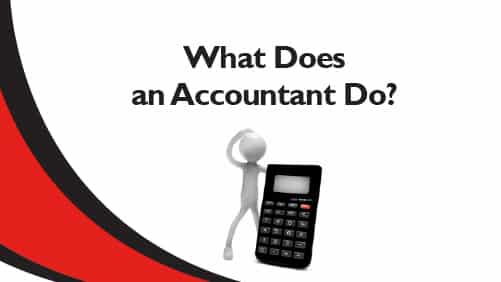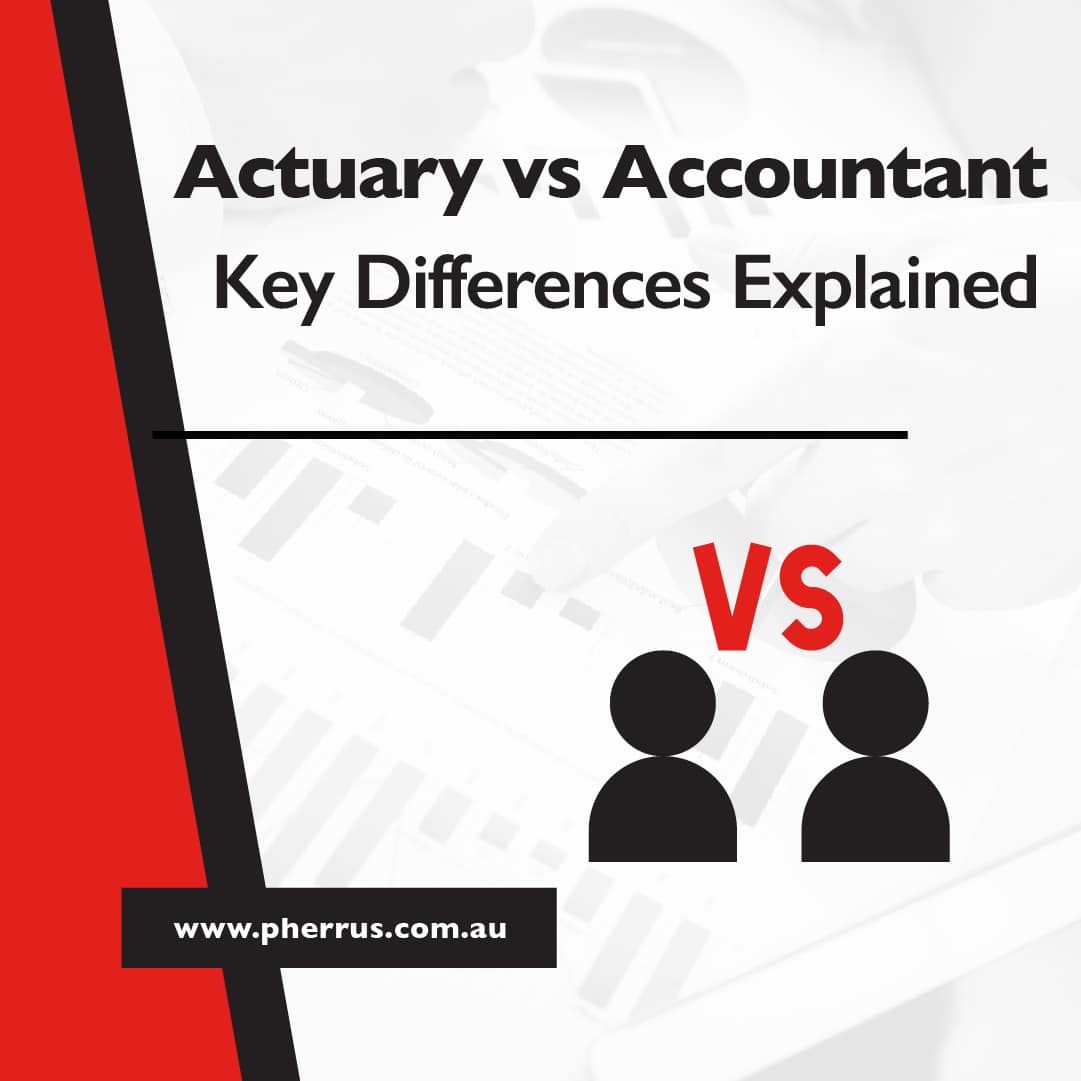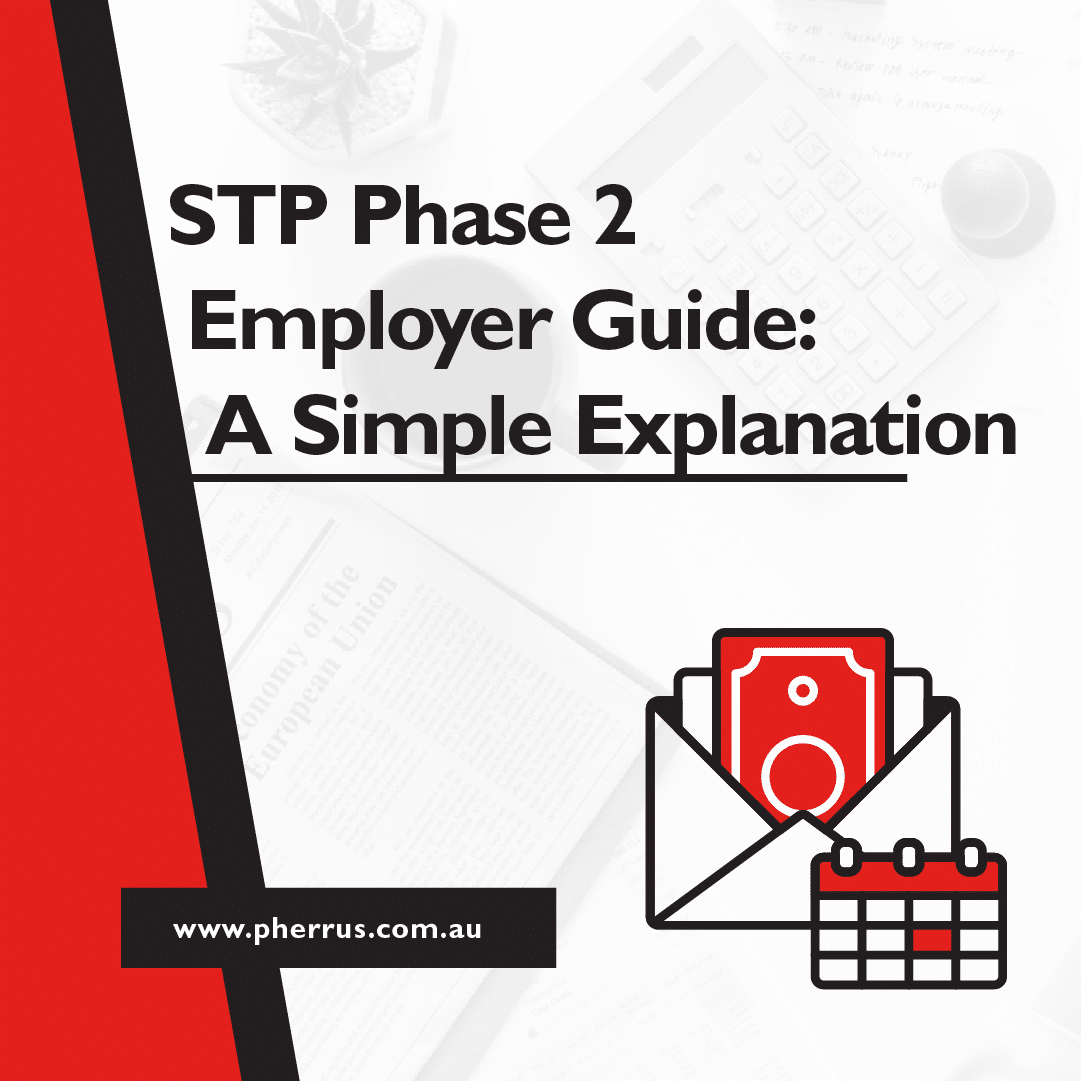If the finance world were a superhero movie, in one corner, you’d have the Actuary, master of foreseeing financial risk.
In the other, the Accountant, guardian of financial health and stability!
Both deal with finances and are superheroes in their own right, but their powers are quite different.
Let’s find out the actuary vs accountant differences to help you understand who you need fighting on your side and when.
Key Takeaway BoxActuary vs Accountant: The Key Differences. While actuaries predict and mitigate future financial risks for businesses, accountants keep track of and report their current financial health. |

What Does an Actuary Do?
Actuaries use maths, statistics, and financial theory to guide businesses through the murky waters of future financial uncertainty.
They tend to work in the insurance, finance, and superannuation industries.
Here’s a breakdown of what they do.
- Risk assessment: In insurance, actuaries predict how likely it is that a claim will be made and decide how much should be charged for insurance to cover that risk. They analyse market trends and economic factors to predict investment risk in the finance sector and assess the long-term sustainability of pension funds in the superannuation field.
- Forecasting financial scenarios: Actuaries look at trends and data to predict future financial scenarios, helping businesses prepare for economic downturns or booming markets.
- Using mathematical models: Actuaries use complex mathematical models, statistics, and financial theory to analyse uncertain future events and make informed financial predictions.
Qualifications for an Actuary
Actuaries must complete a Bachelor of Actuarial Studies or a Bachelor of Commerce with a major in Actuarial Studies from an accredited university.
Then, they need to tackle these Actuaries Institute exams:
- Part I: Fundamental concepts in actuarial science.
- Part II: Advanced principles, focusing on specific actuarial applications.
- Part III: Real-world application of actuarial practices.
The Actuaries Institute requires a certain amount of practical work experience (usually a few years) so students can apply the theoretical knowledge they’ve gained in real-world situations.
Once they’ve completed this and passed all exams, they can apply for Associateship of the Actuaries Institute.
Even after achieving their Associateship, continuous learning and professional development are crucial.
This includes staying updated with industry trends, regulations, and techniques.

What Does an Accountant Do?
Accountants are the backbone of financial management in any public or privately-owned business, from small operations to large corporations.
They handle various essential tasks.
- Recording: Meticulously tracking a company’s financial records for accuracy and transparency.
- Compliance: Staying up-to-date with the latest Australian financial laws and standards and ensuring their clients’ practices meet these.
- Taxation: Compiling and reporting compliant tax returns while finding ways to minimise tax liabilities.
- Auditing: Scrutinising financial statements to ensure regulation adherence and to identify and prevent financial discrepancies or fraudulent activities.
- Financial planning: Developing financial plans and policies for wealth growth and stability.
- Budgeting: Creating and overseeing a budget to help businesses stay on track financially. This includes analysing costs to maximise profitability.
- Evaluating: Assessing employee performance statistics to help business owners make strategic decisions.
Qualifications for an Accountant
To become an accountant in Australia, a person must
- Obtain a bachelor’s degree in accounting or a related field, such as commerce or business, with a major in accounting from a recognised university.
- Acquire practical experience as part of the university course requirement, usually by working at an accounting firm.
- Gain membership with a professional accounting body like Chartered Accountant (CA) or Certified Practising Accountant (CPA) through additional study and passing exams.
- Engage in continuous professional development to stay updated with the latest accounting practices and standards. They can do this by undertaking additional courses relevant to accounting, attending seminars, and joining professional networks.

When Should I Use an Actuary?
Actuaries are useful in long-term financial strategy planning for businesses, especially those with significant financial risks.
You should consider bringing an actuary on board for any of the following scenarios.
- Designing insurance policies: Actuaries will calculate the correct premiums and benefits so the policy is both fair and financially viable.
- Managing superannuation funds: These experts can help super funds plan so they have enough money to pay out to members in the future for long-term sustainability.
- Assessing business risks: Whether a potential investment, a new business venture, or managing existing financial risks, actuaries can provide the insights you need to make informed decisions.

When Should I Use an Accountant?
Whether you’re running a business or managing your personal finances, you need an accountant on your side.
They’re experts in keeping your finances healthy and on track.
An accountant can help you in these crucial areas:
- Regular and accurate financial record-keeping
- Financial and taxation compliance

FAQ
Can Actuaries Be Accountants?
Actuaries can become accountants if they complete additional relevant accounting certifications or degrees.
While their strong mathematical and analytical skills are advantageous, the specific skills and knowledge required for accounting are distinct from actuarial science.
Is an Actuary a Stressful Job?
Being an actuary can be stressful at times due to the complex and critical nature of the work, which often involves managing significant financial risks and meeting tight deadlines.
However, the level of stress can vary depending on the workplace and the specific role.
Can actuaries and accountants work together, and if so, how?
Absolutely! Actuaries and accountants frequently work together, particularly in businesses where financial risk management is crucial, such as in insurance and corporate finance.
Actuaries evaluate and manage risk, while accountants track the financial outcomes of these risk strategies, ensuring accurate reporting and compliance.
This partnership enhances overall financial strategy and decision-making.

Choosing the Right Professional for Your Financial Needs
Navigating the “actuary vs accountant” decision depends on your financial situation.
Actuaries are ideal for risk assessment and financial forecasting, especially in insurance and superannuation.
For financial record-keeping, tax preparation, and strategic wealth planning, an accountant is your best bet.
If it’s expert accounting services you need, we’re here to help. Our highly skilled and experienced accountants offer a wide range of business accounting solutions.
Take the first step towards financial clarity and success today by filling out our online form or calling +61 (02) 9099 9109 to book an appointment at our Bella Vista office in Sydney, NSW.





